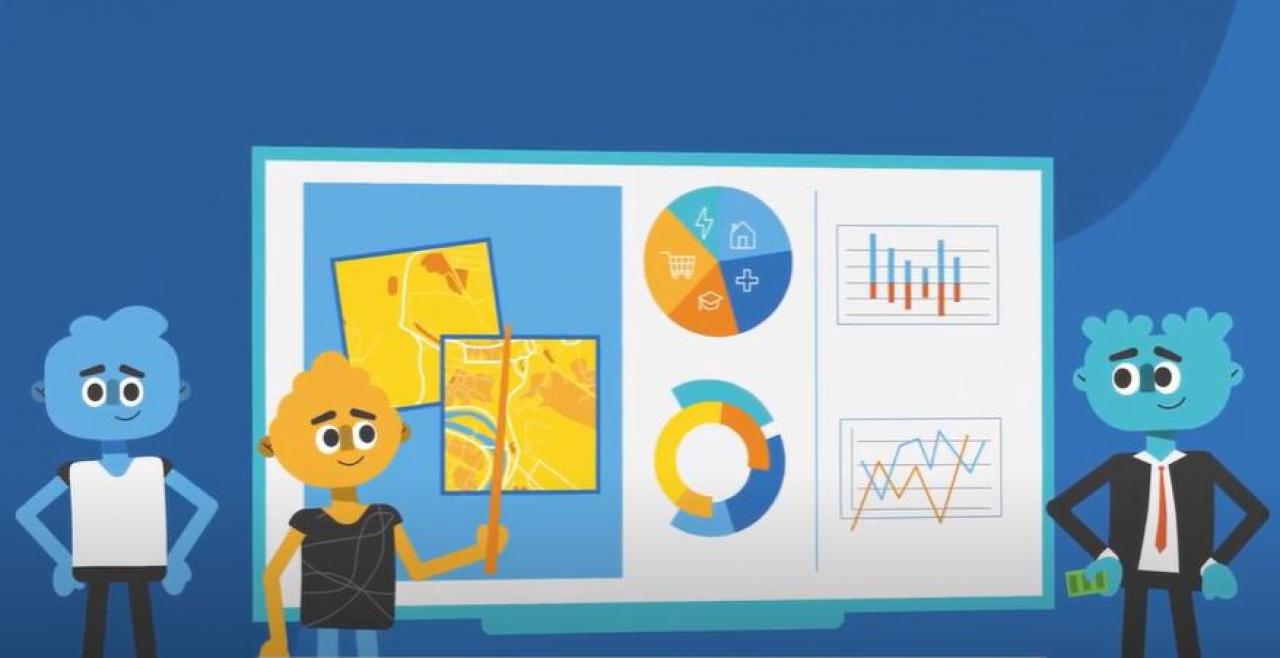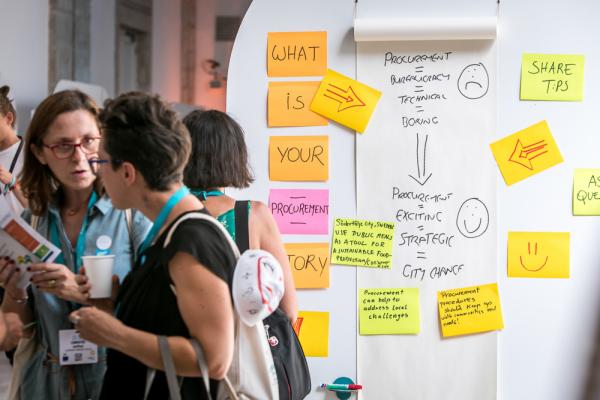
Unlock the potential of public procurement in your city, with URBACT expert Matthew Baqueriza-Jackson.
Public procurement continues to grow in importance across Europe and will be integral to our responses to Covid-19 and the continuing economic, social and environmental challenges that cities face. In this article, I’ll tell you how URBACT has been working to influence this agenda and ensure it remains a core component of Integrated Urban Development long into the future. There is great potential here that needs to be unlocked!
Bringing public procurement into the light
Over the course of the last five years, and instigated by the experience, knowledge, and desire of the City of Preston, URBACT has undertaken a number of activities around the topic of public procurement. I, Matthew Baqueriza-Jackson, as Lead Expert, Ad-Hoc Expert, URBACT representative and trainer have been lucky enough to help shape and animate that activity utilising my knowledge and expertise.
Collectively, we have turned public procurement, as a theme, from something that has always been shrouded in bureaucracy and challenges, to something which is integral to ‘integrated urban development’ and exciting. By this we mean, public procurement can be used as one of the levers which city authorities have at their disposal to address economic, social, and environmental challenges; and as a means of bringing together different stakeholders to improve outcomes.
The work around public procurement undertaken by Preston, URBACT and its participating cities and networks - as described below - has culminated in the production of the URBACT ‘online course on strategic procurement’, which will be launched in March 2021. The course - which involves 7 modules and accompanying city case studies from URBACT - utilises this depth of experience and expertise to provide a step-by-step approach as to how cities can be more strategic in public procurement. Interested? Save your spot by registering online.
So, what have we collectively done around public procurement?
URBACT’s work around public procurement commenced in 2015, with the launch of the Procure Action Planning Network. Led by the City of Preston and involving ten other cities, this network started the journey to change the perception and role of public procurement. Our core finding from three years of action planning activity was that public procurement has to be viewed as a ‘cycle’. To be able to embed social and environmental outcomes into public procurement, there has to be:
- political buy-in and a willingness to change public procurement cultures;
- an understanding of where existing municipality procurement spend goes and how much is spent;
- an overarching procurement strategy or approach - which as well as legislative requirements, details the economic, social and environmental outcomes a municipality wants to achieve through procurement;
- a reflection upon the relevance of those wider outcomes during the design of goods, services or works (commissioning);
- questions asked around these wider outcomes during tendering, and evaluation of responses during decision-making and selection of the winning supplier;
- monitoring of the extent to which those wider outcomes are achieved during the delivery of the good, service, or work.
Feeding into the EU Urban Agenda
In 2017, the City of Preston and I (as an URBACT representative) were asked to participate in and observe the activities of the EU Urban Agenda Partnership on Innovative and Responsible Public Procurement. The Partnership, through engagement with the European Commission, other European programmes and institutions, and regions and cities, sought to further advance the use of public procurement as a means to delivering key economic, social and environmental outcomes.
In practice, URBACT’s role has been far from simple ‘observation’ – indeed, with the City of Preston, we have led the development of the Partnership’s Measuring Spend and Wider Impact Action and have contributed towards the Building Strategy Action.
Supporting city transfer of good procurement practice
Also in 2017, the City of Preston was awarded URBACT Good Practice status for its work around ‘spend analysis’ and how it can be used to progress procurement processes and practices. In 2018, the Making Spend Matter Transfer Network started the journey of transferring this Good Practice to six other cities.
The Network is due to complete its activities in June 2021, with the cities working on understanding, adapting, and re-using the Good Practice in their own contexts, and the City of Preston importantly improving it. The Network will launch its final output - a Toolkit on how cities can be more strategic in public procurement, at a conference in March 2021.
Since 2019, URBACT has also started to integrate public procurement learning into other network activities. As part of the evolution of the Implementation Networks, URBACT produced a Guide about the implementation challenges of public procurement and how they can be overcome, with case studies detailed throughout.

The Playful Paradigm and Urban Regeneration Mix Transfer Networks are also embedding exchange and learning activities around public procurement into their networks, for which I have been providing ad-hoc expertise. Playful Paradigm has produced the ‘Playful Paradigm Procurement Guide’, which talks through the stages cities need to go through to purchase goods, services, and works associated with play and games. Urban Regeneration Mix are exploring how public procurement can be used to deliver regeneration outcomes, with this a key topic of conversation at their upcoming Exchange and Learning Seminar.
Spreading procurement knowledge beyond URBACT!
In 2018, URBACT, started the process of formulating an online course, using this wealth of knowledge, experience, expertise and outcomes. During the 2018 URBACT City Festival in Lisbon, I led a Lab Session entitled ‘Buying a Better Future’. The session reflected on the core findings of the Procure Network, and how the steps of the procurement cycle could be translated into real procurement exercises.
This has developed into what has become the URBACT ‘Online Course on Strategic Public Procurement’ to be launched in March 2021 – don’t forget to register now!
What is more, this course will not be the end of the journey. In fact, it is just the start of embedding our learning from our networks and involvement in the EU Urban Agenda Partnership to a bigger and wider audience. Please join us to see what you can learn and use for the benefit of your city!
Matthew Baqueriza-Jackson is the Lead Expert of Making Spend Matter. He has represented URBACT on the EU Urban Agenda Partnership on Innovative and Responsible Public Procurement and is the Co-Trainer for the ‘URBACT Online Course on Strategic Public Procurement’.

